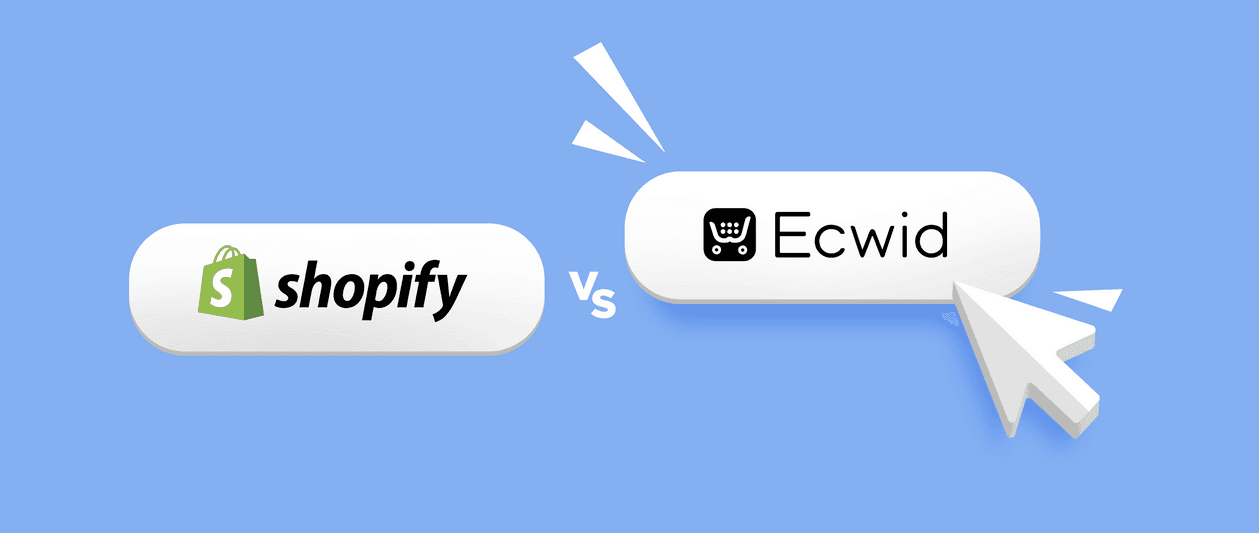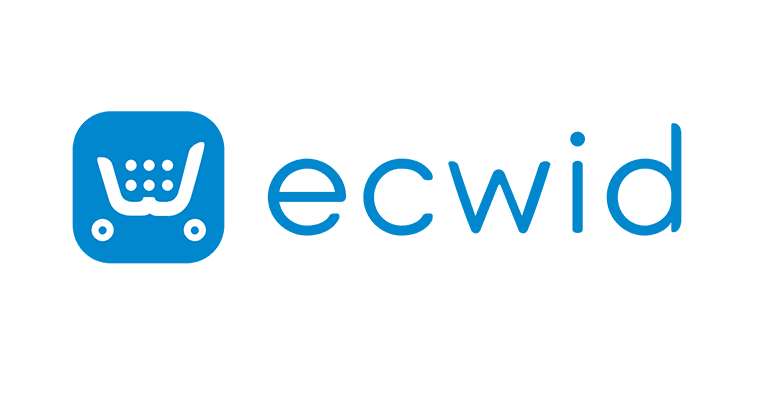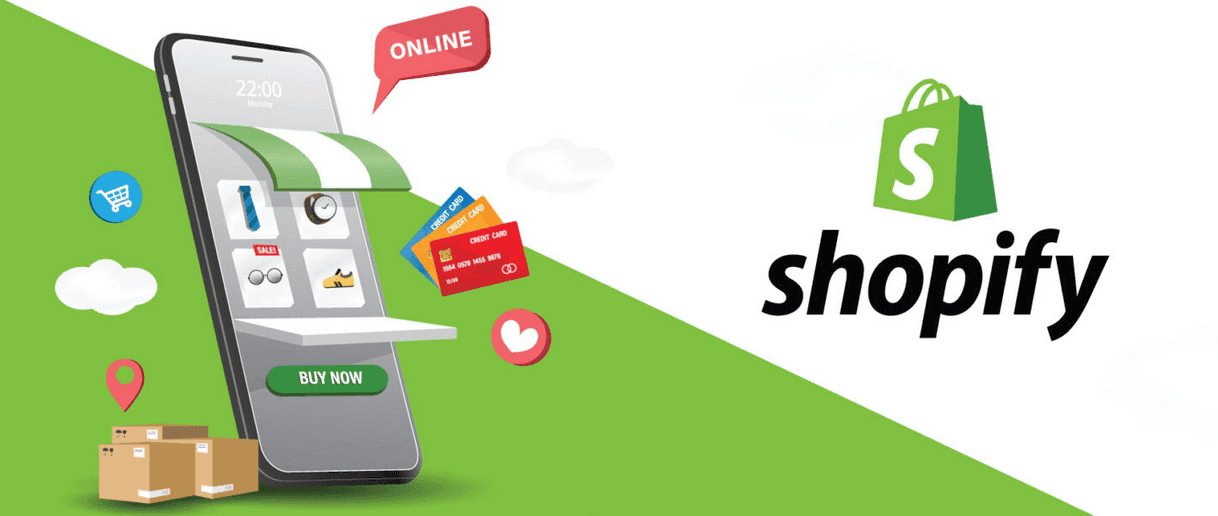Is Ecwid the Best Shopify Alternative?

Many Shopify alternatives exist, but Ecwid is among the prominent choices that may carry distinct advantages for your business. Both Ecwid and Shopify cater to ecommerce needs, but each offers a unique set of features, pricing structures, and user experiences likely to make it a better fit for you.
While Shopify is widely acclaimed, exploring popular alternatives like Ecwid can be vital for businesses seeking flexibility, affordability, or specific features that might not be available in Shopify’s ecosystem.
In this article, we will explore the capabilities and functionalities of Ecwid likely to make it the best Shopify alternative. We will look at the pros and cons of each platform and compare Ecwid to Shopify to help you determine which one best suits your business needs.
What is Ecwid
Ecwid is an ecommerce platform that gets its name from its original idea, “Ecommerce widgets.” The platform was originally designed to allow small businesses to set up online stores quickly and sell from any digital channel.
Ecwid has a user-friendly design and is built to adapt across various platforms, including social media, existing websites, and mobile channels. Its centralized inventory, pricing, and order management, among other useful features, make it inherently convenient.The software-as-a-service (SaaS) platform is beginner-friendly, with four pricing plans ranging from free to $99 monthly plans.

Ecwid’s Instant Site online store and handy integrations with third-party solutions like WordPress, Squarespace, Wix, and more are available across all pricing plans. This makes it an excellent ecommerce platform for beginners on a slim budget.
If you settle for a higher-tier plan, you enjoy multichannel sales across major online channels like Amazon, Facebook, Instagram, and eBay. These plans also allow for in-person sales via retail POS systems like Vend by Lightspeed, Clover, and Square.
Features of Ecwid
Ecwid offers a diverse range of features, including the following:
Seamless integrations with third-party solutions.
Mobile responsiveness.
Email, chat, and telephone support from Monday through Friday.
Ability to sell on Instagram and Facebook and across Amazon, eBay, and POS systems on paid plans.
Tiered pricing structure with options ranging from free to paid plans.
Ability to sell physical goods and services on all plans.
Basic SEO tools and the ability to add the store on SEO-friendly WordPress, Wix, and Squarespace sites.
Pros and Cons of Ecwid
Pros
It has a beginner-friendly user interface.
It has a tiered pricing structure with options for free and paid plans to suit small and larger businesses.
It allows businesses to add a shop to existing websites and social media platforms like Facebook and Instagram.
It has no added transaction fees.
Cons
The free plan has limited support, for only ten items.
Lower-tier plans have limited features.
What is Shopify
You are probably familiar with Shopify and for a good reason. The ecommerce platform powers the largest number of top-ranking websites worldwide and boasts a market share of 10.32% globally.
It is renowned for its wide array of features and tools, making it a go-to platform for creating and managing online stores.Like Ecwid, Shopify is a software-as-a-service (SaaS) platform, only more popular and robust. However, it has no free plan, which sets it apart from Ecwid.

Shopify pricing structure starts with a $5-monthly plan offering limited sales features. To access more features, prepare to pay anywhere between $29 and $299 monthly.
Regardless of your plan, Shopify offers unlimited product listings, a customizable online store, and sales on channels like Amazon, Facebook, Instagram, and eBay. The platform also supports in-person mobile POS sales.
Features of Shopify
Extensive customization
A secure payment gateway
Unlimited product listing on all plans
Support for sales on all social media and marketplace sales channels
Basic but expandable built-in SEO tools
Built-in email marketing campaigns
24/7 email, chat, and telephone phone support
Pros and cons of Shopify
Pros
The platform supports omni-channel selling
It has numerous modern, mobile-friendly ecommerce store themes
It has many handy integrations
It has advanced ecommerce features
Cons
Free Shopify store themes are basic
It has added transaction fees for businesses that don’t use Shopify Payments
Is Ecwid the Best Shopify Alternative?
Whether Ecwid is the best alternative to Shopify depends on your needs and priorities. Ecwid and Shopify are popular for their valuable suite of ecommerce tools for managing products, payments, inventory, orders, and customers across different channels. You can use either of them on your website or across various sales channels.
However, the two platforms have significant dissimilarities that can make one a better fit for your business than the other.Let’s look at these characteristics in detail to help you determine if Ecwid suits your business.
Ease Of Use and Beginner Friendliness
Both Ecwid and Shopify have beginner-friendly user interfaces, but Ecwid may prevail over Shopify in terms of ease of use.
Ecwid is designed to allow users to quickly set up and manage their online stores, thanks to an intuitive user interface and easy-to-use architecture.
It integrates seamlessly with social media platforms and existing websites using a link, allowing users to set up storefronts across these channels with zero knowledge of code writing. This quality makes the platform convenient for startups and small businesses.
On the other hand, Shopify offers a simple and intuitive dashboard that makes it easy for intermediate and advanced users to navigate.
Since Shopify is a feature-rich platform, beginners with little knowledge of website building may find it challenging to set up and customize. Compared to Ecwid, Shopify’s setup process is less straightforward, with a modest learning curve.
However, neither of the platforms requires previous coding or technical expertise to create an online store.
Cost and pricing
Ecwid costs less at first glance than Shopify. It even has a free plan, which can be perfect for a startup or small business with limited financial resources. If all you want is to have an online business presence, Ecwid should be an obvious choice.
Shopify does not have a free plan, even though its lower-tier plans have more features than Ecwid plans across the same price range.
For instance, Shopify’s base store plan includes all sales channels, unlimited products, and mobile POS service.
In comparison, Ecwid has product limits across different plans, with only its top-tier plans allowing all sales channels and mobile POS functionality.
So, if you are happy with basic ecommerce functionalities, Ecwid can help you save money as a free alternative to Shopify. Note that such free Shopify alternatives are few.
But if you want more functionality with your ecommerce plan, Shopify is the preferable solution.
Ecommerce Features
You probably guessed it right—Shopify has more eommerce features than Ecwid.
Both platforms support ecommerce sales of all types and offer detailed product pages, including photos and videos, sale prices, and item variations. You can store information pages, choose whether or not to require customer logins, create collections, and automate order management on both Shopify and Ecwid.
But that is as far as the common ground stretches between the two platforms. From there on, Shopify takes the lead, starting with its product management and ecommerce store menus that are more robust than Ecwid’s.
On Shopify, you can organize large product directories into collections and sub-collections. The platform then allows you to list the product catalogs in mobile-friendly menus for your shoppers.
In comparison, Ecwid’s Instant Site is a stand-alone built-in online store that supports product collections. However, these collections lack the mobile-friendliness that you enjoy with Shopify.
With 60 percent of worldwide ecommerce sales happening on mobile devices, leveraging Shopify’s mobile-friendly menus can be a clever way to drive sales.
Available Sales Channels
Whether you sign up for Ecwid or Shopify, you can sell your products anywhere. “Anywhere,” in this case, means a full range of sales channels, including websites, e-commerce marketplaces like Amazon and eBay, and social media platforms like Facebook, Instagram, TikTok, and Pinterest.
The platforms also support in-person sales via retail and mobile POS systems.
However, while Shopify’s base store plan provides access to all sales channels, Ecwid has restrictions across different tiers. So, a multichannel seller is bound to get more value from Shopify than Ecwid.
Search Engine Optimization (SEO) Tools
Both Shopify and Ecwid have basic SEO support, but the functionality is limited on both platforms.
You can make the most of these basic SEO features by using proper keywords in your product descriptions, titles, meta descriptions, and media file names.
For Ecwid, plugging your store onto an SEO-friendly Wix, WordPress, or Squarespace website can help you improve its SEO friendliness.
The same rule applies to Shopify, albeit with significant advantages over Ecwid. Shopify allows you to expand its SEO features by adding apps like Bloggle and Yoast SEO.
Content Management Features
Ecwid allows users to build a simple blog on its Instant Site offering by adding a “Blog” collection. Once that is done, they can then use pages to publish blog posts.
Shopify also offers a similarly basic content management feature but with more features and functionality than Ecwid. The built-in blog with basic features is available across all Shopify store plans and can be extended with Blog Studio, DropInBlog, and such other Shopify blogging apps.
Notice that, unlike Shopify, Ecwid does not have proprietary blogging apps for extending its content management. However, you can embed an Ecwid store into a WordPress, Squarespace, or Wix website to get a more powerful content management and marketing solution.
Customization
Shopify is a clear winner as far as customization options are concerned. Ecwid integrates with various website builders, allowing more flexibility in layout and design. However, Shopify’s customization options are more extensive. The platform also boasts a wider range of templates.
This means you can create a unique and branded online store with Shopify and integrate it with third-party apps for better functionality than Ecwid.
Ecommerce Features and Functionality
You will likely get more features with Shopify, and this influences your ecommerce store functionality.
However, both platforms do a decent job of providing basic ecommerce features required to set up a shop and start selling.
One such area of common strength between the two platforms is email marketing. Both Shopify and Ecwid have built-in automated email marketing campaigns and abandoned cart recovery email functionality.
Each of them also provides email list-building features and allows you to connect various email apps.
Scalability
For a larger enterprise seeking substantial growth seamlessly, Shopify should be an obvious choice. It is generally more scalable, making it ideal for growth-minded ecommerce businesses, thanks to its advanced features and the ability to handle higher traffic.
But for a smaller or mid-sized business, Ecwid should be preferable. It is built for quick setup and rollout, ideal for startups and small businesses at their initial stages.
So, while Ecwid is modestly scalable and can handle moderate levels of growth, some larger businesses may find it less suitable for their needs.
Shopify, on the other hand, is highly scalable and designed to suit the needs of businesses of all sizes—big or small.
Ecwid Vs. Shopify: Which is Better For Your Business?
The better ecommerce solution between Shopify and Ecwid comes down to your business size, requirements, and plans for scaling.If you need a robust, all-in-one e-commerce platform with a wide range of features and scalability, Shopify may be the better choice.
On the other hand, if you have a limited budget and want a simpler solution, Ecwid could be a suitable alternative. We recommend assessing your specific business needs and considering factors like pricing, customization, and feature requirements when deciding.
Shopify vs Ecwid: Final Take on Best Shopify Alternative
In this discussion, we have noted that Ecwid can be the best Shopify alternative for a small business or startup looking for a free Shopify alternative. It also lets you quickly set up your store and start selling anywhere.Some of the features that make Ecwid the best Shopify alternative include:
Ease of use
Moderate scalability
Basic ecommerce features such as email marketing support
Easy integration with various website builders
Content management features on Instant Site
SEO support
Low cost
In our next post, we will continue to look at popular Shopify alternatives and how best to implement them. Keep an eye out for this. Meanwhile, you can schedule a free consultation call with the on-hand team of Shopify experts at Endertech for a personalized evaluation of your ecommerce business options.
